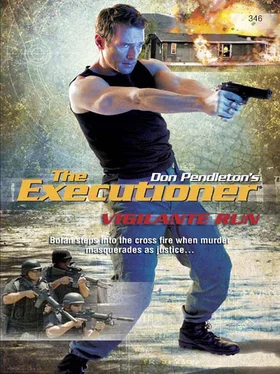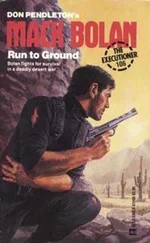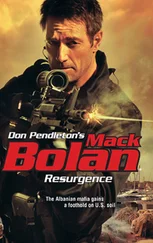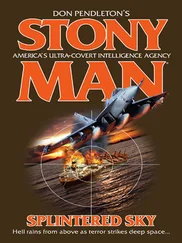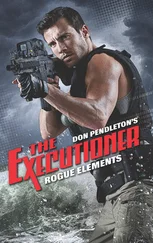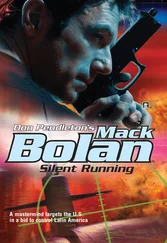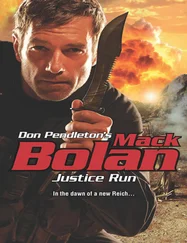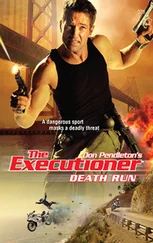It had been a slaughter.
As his eyes adjusted to the dim light, Rook counted a pair of Whiteshirts near the door and three more sprawled on the floor by the bar. The other bodies were collateral damage. Rook dismissed them. Anyone in the club was up to no good, regardless of their connection—or lack of it—to the Purists.
Rook spun on his heel and made for the door. He knew he’d have to move fast. The cops were never far from this part of town. He needed to be a long way away before they arrived on the scene. In the meantime, another message—and another declaration of war—had been left for the Purists, courtesy of their hired help.
P ICK M C W ILLIAMS , dressed in a gold shirt and khaki pants in an attempt to blend with the crowd, sat in the airport bar nursing a beer. He glanced around nervously and checked his watch again. He’d checked the boards. The man Trogg had called “Kohler’s guest” was late because his flight had been delayed. McWilliams had been waiting for almost two hours and was getting stiff and sore.
McWilliams was trying in vain to signal the bartender from his booth for another beer when he saw the man enter the lounge. McWilliams had no physical description to go by, but this newcomer had to be the right guy. His eyes never stopped moving. He watched every corner of the bar almost at once as he stalked through it like he wanted to kill everyone. If what Trogg had said about Kohler’s brief phone call was true, the guy could kill everyone there, McWilliams thought.
The newcomer zeroed in on McWilliams almost immediately, his eyes narrowing as he took in the biker’s out-of-date clothing. He made his way to the booth and sat without invitation, his hands hidden beneath the table.
“Well. Aren’t you a piece of work,” he said. His voice was smooth, deep and quiet. It was the voice of a man who didn’t shout, who didn’t repeat himself. It was the voice of a man who was used to getting what he wanted the first time he asked.
“Pick,” McWilliams said, extending a hand. The man’s gaze flickered to it disdainfully before centering on his face. McWilliams withdrew his hand, feeling like a sucker, and swallowed his pride. Getting angry with this dangerous bastard would only get his ticket punched.
“Carleton,” the man said.
McWilliams didn’t know if it was a first name or a last name. He did not ask. Carleton was maybe five-nine, five-ten, and nearly two hundred pounds. His hair was cropped close; his face was outlined by a severely trimmed mustache and beard. He was wearing a black button-down silk shirt, a subdued black-and-gray tie and black slacks under an expensive looking trench coat that might have been Armani. McWilliams didn’t know if Armani made coats, but he knew money when he saw it. This Carleton did well for himself and had a big Rolex watch on his wrist to show for it.
“I was told someone would meet me,” Carleton said.
McWilliams said nothing. He produced a large manila envelope and slid it across the table.
“Next time,” Carleton said with a sigh, “slide it under the table.” He opened the folder while holding it out of sight between his body and the wall against which the booth was set. Looking up at McWilliams from behind small, round, wire-frame glasses, his gaze flickered left and right before coming to rest on the biker again. He said nothing.
“What?” McWilliams finally asked.
“I was just thinking that Kohler strikes me as a lot more professional than, well, you,” he said. “What’s a worm like you doing in his employ?”
“I don’t work for him,” McWilliams said. “I’m with the Purists.”
“I’m sure you are,” Carleton said, waving one black-gloved hand. His tone was clear. He didn’t know or care who or what the Purists might be. “Regardless, when Kohler contacted me he said he had a serious problem. If I had a serious problem, I would hardly send the likes of you to convey it.”
“Now just wait a minute,” McWilliams began, finding his nerve. “Just who the hell do you—”
Something jabbed him.
“Ow!” McWilliams jumped in his seat. “What did you just do?”
“Mr. Pick,” Carleton said, cutting off the biker before McWilliams could protest, “have you heard the expression ‘shoot the messenger’?”
McWilliams started to go for the revolver in the back of his waistband, but his arms suddenly felt heavy and warm. He kept trying to reach for the gun, but his limbs wouldn’t obey. His head felt wobbly as he looked at Carleton, confused.
Carleton smiled tightly. “Thank you for the information. Good day.”
McWilliams could only watch as his visitor stood and strode out of the bar, the envelope in one hand. As the well-dressed man swept past a trash can at the entrance, he dropped something in it. McWilliams caught a glimpse of what he thought was a syringe.
He was already slumping in his chair, his throat closing, his breath catching as he tried and failed to cry out. He struggled to draw air, feeling and hearing the croak that left his lips.
Eventually, someone in the bar noticed him sitting there, flailing, and rushed over to try the Heimlich maneuver. By then it was far too late. Pick McWilliams was dead of anaphylactic shock before the EMTs were even called.
Z IPPERS A RCADE WAS A strip club sprawled in a commercial-industrial area on the northern fringes of Syracuse, with an auto yard on one side and a custom upholstery shop on the other. The Executioner had contacted Barbara Price to cross-reference the local data Paglia had provided. Given the size of the city and the scope of the operation—neither of which was particularly significant in the grand scheme of things—there wasn’t much, but Aaron Kurtzman had managed to turn up a few morsels.
The upholstery place, a family business in Syracuse founded forty years previously, was legitimate. The auto yard wasn’t. Tracing its ownership and the ownership of Zippers produced a common front company that was itself a placeholder for a trust that owned multiple other properties. Most of those properties had been connected to Purist-related violence. The trail went all the way back to something called the Diamond Corporation, headed by one Roger Kohler.
Kohler would receive Bolan’s attention in due time. For the moment, the soldier needed to find whoever was killing the Purists—and anyone else who stumbled into the path of the killer’s bullets.
Bolan left his SUV parked nearby, in the parking lot of a closed service station. Its windows were boarded over and bore faded paper signs proclaiming For Sale or Lease. He circled to the rear of the block of businesses and walked casually through the neighboring lot behind them. A dark, three-quarter-length windbreaker worn over his blacksuit covered his hardware from casual observers. Nothing in his manner was furtive or otherwise suspicious. He walked as if he belonged there, at a brisk but unhurried pace. He saw a few pedestrians. Traffic was moderate. It consisted mostly of delivery trucks, most likely headed to the assembly warehouse and lumberyard visible in the distance.
The back door of Zippers was labeled and unmanned. Bolan spotted a closed-circuit television camera aimed in his direction and paused. He looked hard at the device, then resumed his course. Up close, he confirmed what he’d thought to be the case—the cable leading from the rear of the camera terminated directly against a four-by-four wooden post set in the asphalt overlooking the rear of the club. It was a good bet nobody had taken the time to hollow out the post in order to run a cable down its length. The device was a dummy, the kind anyone could buy from a novelty catalog. As he approached he noticed the generic warning sticker pasted to the back door, claiming the building was protected by an alarm system.
Читать дальше
